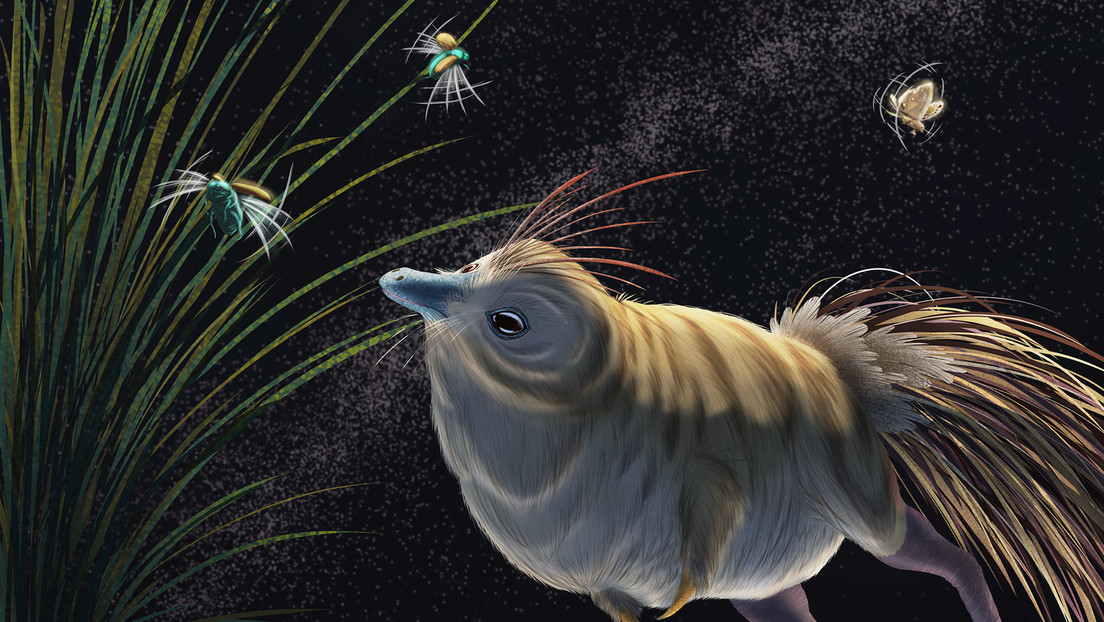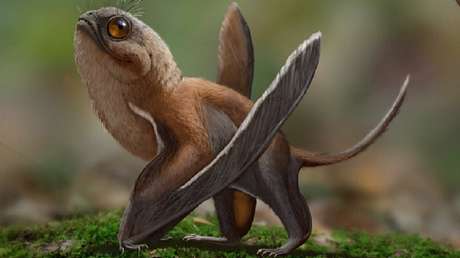PHOTOS: They analyze the remains of a “strange” dinosaur and discover that it was an early nocturnal predator

Published:
May 8, 2021 11:39 GMT
At only 60 cm long, the Shufuya Deserti was a two-legged “Shufuya desert” with long hind legs and strong front claws that allowed it to dig into the ground to hunt prey at night.
a a study The publication on Friday in the journal Science indicates that a small carnivorous dinosaur lived more than 65 million years ago in what is now known as the Gobi Desert, between Mongolia and China, and had “unusual” night vision and hearing, so scientists believe it can be considered one of the The first nocturnal predators.
It is a creature “Shuvuuia deserti” which is only 60 cm tall and weighed similar to that of a modern small house cat. It was a bipedal animal, with very long hind legs, short but powerful front limbs, and equipped with large claws that allowed it to dig easily.
“It’s such a strange animal that paleontologists have long wondered what it really did,” an appointment Reuters to Roger Benson of the University of Oxford who took part in the study.
However, after examining the animal’s fossil remains and comparing its eye and ear structures with those of modern nocturnal animals, scientists found that the animal’s audiovisual perception abilities were similar to those of the barn owl. This distinguishes it from most carnivorous dinosaurs, which generally have good hearing, but at the same time the vision adapts to the diurnal activity. All this can tell us a lot about the way this dinosaur lived, says the article’s lead author, South African paleontologist Jonah Schwenier.
“It is possible that ‘Shuvuuia’ ran across the desert under the cover of the night, using its amazing hearing and night vision to track small prey such as nocturnal mammals, lizards and insects. With its long legs it can quickly reach that prey and use it the scientist assumes that its front legs to search for prey and extract it from any Kind of shelters, like a burrow. “

This is the first time that such a combination of visual and auditory adaptations has been documented in a theropod dinosaur, indicating that nocturnal predation evolved earlier than previously thought.
“This mixture of sensory adaptations evolved independently in dinosaurs long before the spread of modern birds,” the researchers wrote, “and is a fine example of the rapprochement between dinosaurs and mammals.”
If you find it interesting, share it with your friends!

“Evil coffee nerd. Analyst. Incurable bacon practitioner. Total twitter fan. Typical food aficionado.”

:quality(70):focal(288x128:298x138)/cloudfront-us-east-1.images.arcpublishing.com/metroworldnews/4VWFN4IMGFGQTCCSYSVPIJDM4A.jpg)









